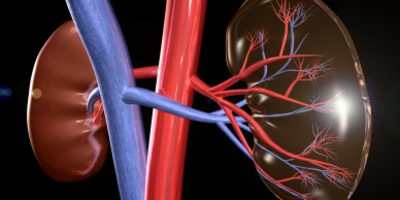
New Report on Science to tackle non-communicable diseases in South Asia and beyond in the SDG era published
NEW DELHI, AUG 11. The incidence of non-communicable diseases (NCDs) is increasing around the world. NCDs are estimated to be responsible for 41 million deaths each year, many of which are categorised as ‘premature’.
To help identify ways to address this issue in South Asia, The UK Academy of Medical Sciences held a two-day workshop in partnership with the National Academy of Sciences in Colombo, Sri Lanka. The workshop was part of the Global Challenges Research Fund (GCRF) programme, and brought together 61 researchers, clinicians, policymakers and funders from nine countries across South Asia, as well as from the UK, USA and Australia.
South Asia has a significant burden of infectious diseases, but at the same time there is growing prevalence of NCDs accounting for increasing mortality and morbidity. In India, the age of onset of NCDs is in young adults. More than two-third (61.8%) of the deaths in India are contributed by NCDs. The risk of premature deaths (<70 years) due to NCDs is 23%.
Many people, especially in rural areas, are unaware of the risks posed by tobacco use, alcohol consumption and a sedentary lifestyle. People often seek help from healthcare facilities only once complications have arisen, meaning the condition has usually become more serious and less easily treated.
“Many people with Kidney diseases in India are not aware that they progressed to end stage kidney diseases due to uncontrolled Diabetes or Hypertension, a comprehensive approach to NCDs will help early recognition and response, a concerted regional approach would help achieve the same, this report is timely to set the research priorities.” Said Prof. Vivekanand Jha, Executive Director, George Institute for Global Health India.
The workshop allowed participants to identify key challenges and barriers to addressing NCDs in South Asia, including:
- A lack of NCD data in the region
- Unknown population-specific risk factors
- Limited access to healthcare
- Lack of research incentives and support
Despite the challenges, participants also identified opportunities to accelerate progress in NCD research, implement tools and identify innovations that could support researchers and healthcare workers including:
- Improving the understanding of regional NCD risk factors
- building research and healthcare capacity
- developing technical innovations which may offer a low-cost and effective solution
Participants felt that there is huge opportunity to collaborate to tackle these challenges with creative and long-term approaches. Across the diseases that make up the burden of NCDs there are common themes and interventions including: early life targeting, diet, alcohol use, tobacco use and exercise, commercial determinants of health and indoor and outdoor air pollution.
Attendees agreed on the value in working together in the future, and the development of a UK and South Asia Non-Communicable Disease Collaboration & Development Network (UKSANCDN) was proposed. This network would aim to build the evidence base and strengthen NCD research capacity across South Asia by providing training, building a regional network of NCD researchers and research institutions, and ultimately addressing many of the research barriers in the region.
“It is an honour to contribute to the workshop as a member of the steering committee, as highlighted in the report persons with NCDs would benefit from digital health innovations that helps them monitor and manage their conditions at home. The COVID-19 pandemic has highlighted the importance of technological tools in empowering persons with NCDs for self-monitoring and home-based care. We look forward to support the acceleration of health innovations for management and control of NCDs through the UKSANCDN network that was established during this workshop” said Dr. Oommen John, Senior Research Fellow at George Institute for Global Health India.
For more information, download the full report. (PDF 310 KB)




